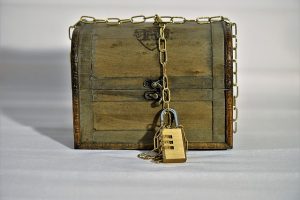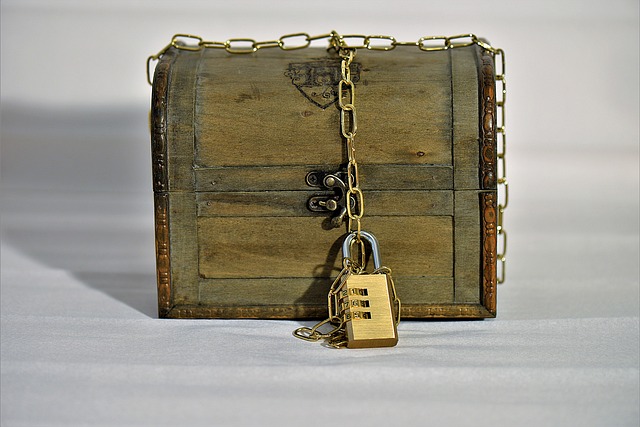
BS”D
Metzora
Volume 38, No. 28
12 Nissan 5784
April 20, 2024
Sponsored by Rabbi Sanford H. Shudnow and family on the 20th yahrzeit of his father Mr. Phillip S. Shudnow (Shraga Feivel ben Haim a”h) and on the yahrzeit of his grandfather Mr. Hyman S. Shudnow (Haim ben Shneur Zalman a”h) and Rabbi and Mrs. Barry Greengart, on the yahrzeit of his mother Yuta bat Yosef a”h
This week’s Parashah continues to discuss Tzara’at, including Tzara’at that strikes the walls of a person’s house. Rashi z”l quotes a Midrash: This is good news, for when the stones that show signs of Tzara’at are removed from the wall of the house, the owner finds treasures that the Canaanites hid within the walls. [Until here from the Midrash]
R’ Mordechai Greenberg shlita (Rosh Yeshiva Emeritus of Yeshivat Kerem B’Yavne in Israel) asks: Our Sages teach that Tzara’at is a punishment for serious sins, including speaking Lashon Ha’ra. How can it also enrich the person whose home is stricken? Also, asks R’ Greenberg: we read (Vayikra 14:34), “When you arrive in the land of Canaan that I give you as a possession, and I will place a Tzara’at affliction upon a house in the land of your possession.” In contrast, when the Torah speaks of Tzara’at on a person and on clothing, it does not say, “I will place”; rather, it says (Vayikra 13:2, 9 & 47), “If there will be . . .” Why the different wording?
R’ Greenberg explains: We find that the Tochachah / rebuke and curses in Parashat Bechukotai ends with words of consolation (Vayikra 26:45), while the Tochachah in Parashat Ki Tavo does not. Why? R’ Meir Zvi Bergman shlita (Bnei Brak, Israel) explains that the Tochachah itself should console us, for it shows us that Hashem is paying attention to our deeds and reacting to them. That is true of the Tochachah in Ki Tavo. However, the Torah tells us repeatedly that the Tochachah in Bechukotai will continually worsen because we will attribute it to chance. When we do not recognize that Hashem is behind events and is reacting to our sins, we cannot find consolation in a Tochachah, so express words of consolation are needed.
R’ Greenberg continues: R’ Moshe ben Maimon z”l (Rambam; 1135-1204; Spain and Egypt) teaches that the three types of Tzara’at come in a progression: first on one’s house; then, if he does not repent, on his clothing; and finally, if he still does not repent, on his body. Therefore, R’ Greenberg writes, Hashem says “I will place” Tzara’at on a person’s house to indicate that the person should recognize that Hashem placed it there deliberately to send him a message. If one fails to recognize that, if he attributes the Tzara’at to chance (“There will be . . .”) and he continues speaking Lashon Ha’ra, the Tzara’at will progress to his clothing and eventually to his body. Like the person who attributes the Tochachah to chance, he will need to be struck again and again, G-d forbid.
On the other hand, if the person gets the message as soon as the Tzara’at strikes his house and he repents, he deserves to be rewarded with finding a buried treasure. (B’darchei Ha’parashah)
********
“Remember the Torah / teaching of Moshe, My servant, which I commanded him at Chorev for all Yisrael, decrees and ordinances. Behold! I send you Eliyah the prophet, before the great and awesome day of Hashem.” (Malachi 3:22-23–Haftarah for Shabbat Ha’gadol)
R’ Yitzchak Arieli z”l (1896-1974; Mashgiach of Yeshivat Mercaz Harav; author of Enayim La’mishpat) writes: The end of the book of Malachi, where these verses appear, is also the end of the era of prophecy. Until Eliyahu Ha’navi returns to herald the ultimate redemption, there will be no more prophets and prophecy. Where then are we to find guidance? Malachi tells us: By delving into the depths of the Torah that Hashem taught us through Moshe, we can find the answer to every mystery and conundrum that the future will present.
R’ Arieli comments further: One of the names of Mount Sinai, where the the Torah was given, is “Chorev,” from the same root as “Churban” / “destruction.” This alludes to the fact that the Torah was given in a desolate wilderness. Why? To teach us that our role is to “build” the Torah. How? Through the give-and-take of the Oral Law–starting, of course, from the premises that Hashem gave Moshe and Moshe placed “in the ears of Yehoshua” (Shmot 17:14), an allusion to the Oral Law, which is heard and not read. [Later, the foundation of the Oral Law, the Mishnah and Gemara, were committed to writing, but that is not the ideal.]
R’ Arieli adds: Our verse teaches that the Torah was given “for all Yisrael,” meaning that no Jew can claim exemption from studying and understanding it. (Haggadah Shel Pesach Shirat Ha’geulah p.21)
********
Pesach
R’ Yitzchak Aryeh Wormser z”l (1768-1847; Germany; known as the “Ba’al Shem of Michelstadt”) bemoans–in poetic language that cannot adequately be rendered into English–that there are those who mock the recitation of Chad Gadya. Accordingly, he offers the following explanation for the poem that appears at the end of the Haggadah:
“Gadya” (גדיא) alludes to the uniqueness of the Jewish People, as its letters allude to the three (‘ג) Patriarchs, four (‘ד) Matriarchs, Ten (‘י) Commandments, and One (‘א) G-d. In addition, it is the acronym of the Hebrew phrase: “The fourth exile will be long.” It also alludes to the verse (Divrei Ha’yamim I 17:21), “Who is like Your people Yisrael, a unique nation on earth” (“גוי אחד בארץ”).
The “two Zuz” allude to the two Luchot with which Hashem acquired us. The word “Zuz” in Aramaic means “pair,” alluding to the fact that there were two pairs of Luchot.
“Shunra” (the cat that ate the goat) has the same Gematria as “Nevuchadnezar Melech Bavel,” the Babylonian king who destroyed the first Bet Hamikdash and exiled the Jewish People.
“Kalba” (the dog that bit the cat) is the Persian Empire that conquered the Babylonian Empire, because it is the acronym of the Hebrew phrase meaning, “Koresh (Cyrus) fought with Belshatzar (the Babylonian king),” as well as the Hebrew phrase meaning, “Koresh captured Bavel.” Also, a Kelev (dog) recognizes its master more so than any other animal does. Likewise, Cyrus was a righteous king who recognized G-d.
“Chutra” (the stick that hit the dog) is Alexander the Great, who defeated Persia and conquered Eretz Yisrael. The “stick” alludes to the force with which he ruled over the entire civilized world. Also, “Chutra” is an acronym for several Hebrew phrases relating to the Macedonian Greek emperor and Greece in general, including:
- “Alexander toiled and exerted energy most his life” on–
- “wisdom and philosophy of nature from his teacher Aristotle,”
- “but all of his toil and philosophical musings were for nothing.”
“Nura” (the fire that burned the stick) is Yehuda Ha’maccabee who defeated the heirs of the Macedonian Greeks, saved the Jewish People, and killed the evil Greek king.
“Maya” (the water that extinguished the fire) is King Herod, who murdered every last member of the Hasmonean dynasty. “Maya” (מיא) is an acronym of several Hebrew phrases relating to Herod and his successors, including:
- “He was the son of Antipater”;
- “His mother was from Yisrael”; and
- “Agrippas, king of the Yehudim [from the Herodian dynasty].”
It also is an acronym of the Hebrew phrases:
- “It will destroy our Mikdash”;
- “Who will redeem us?”
- “Eliyahu and Mashiach together”; and
- “When will Mashiach come?”
“Tora” (the ox that drank the water) refers to the Roman Empire. The Gematria of “Ha’shor” (השור), the Hebrew translation of “Tora” (Aramaic for: “the ox”) equals the Gematria of the Hebrew phrase: “This was Vespasian and his son Titus,” the two Roman generals (later Emperors) who conquered Eretz Yisrael and displaced the Herodian kings.
“Ha’shochet” (the one who slaughtered the ox) alludes to the Moslem Empire that eventually replaced the Roman Empire as the ruler of Eretz Yisrael and continues to be the cause of our current exile. “Shochet” (שוחט) is an acronym of the four “Mitzvot” that Moslems observe (though not as we do): Shechitah, U’milah, Chazir, Tevilah.
“Mal’ach Ha’ma’vet” (the angel of death that killed the Shochet) is “Gog U’magog,” about whom Yechezkel prophesied. The Gematria of “Mal’ach Ha’ma’vet” equals the Gematria of the Hebrew phrase: “The great king Gog from the land of Magog.”
Finally, “Ha’kadosh Baruch Hu” will destroy Gog and his hordes and return the Jewish People to our land. Amen, Kein yehi ratzon! (Ba’al Shem Mi’Michelstadt p.226)


